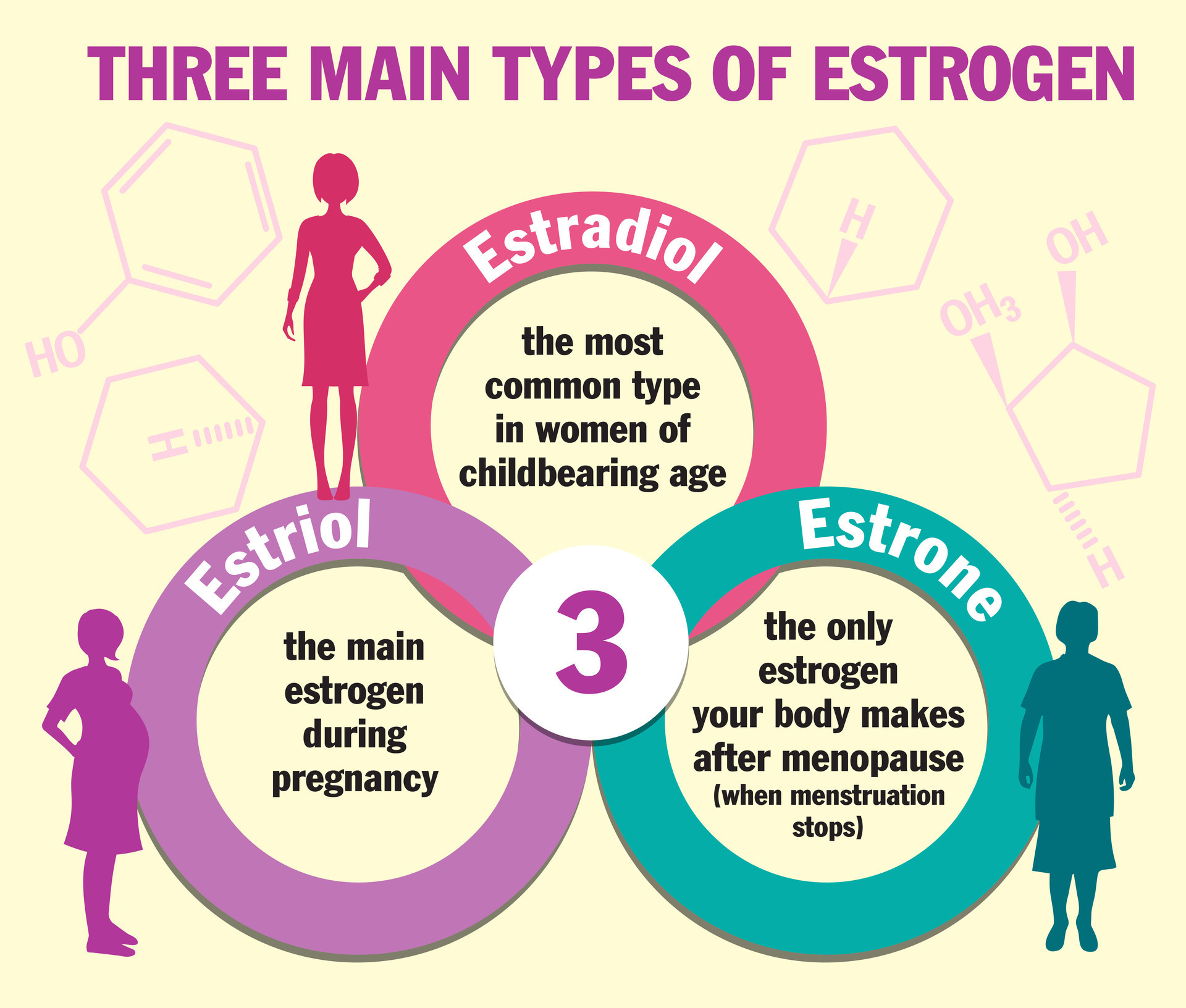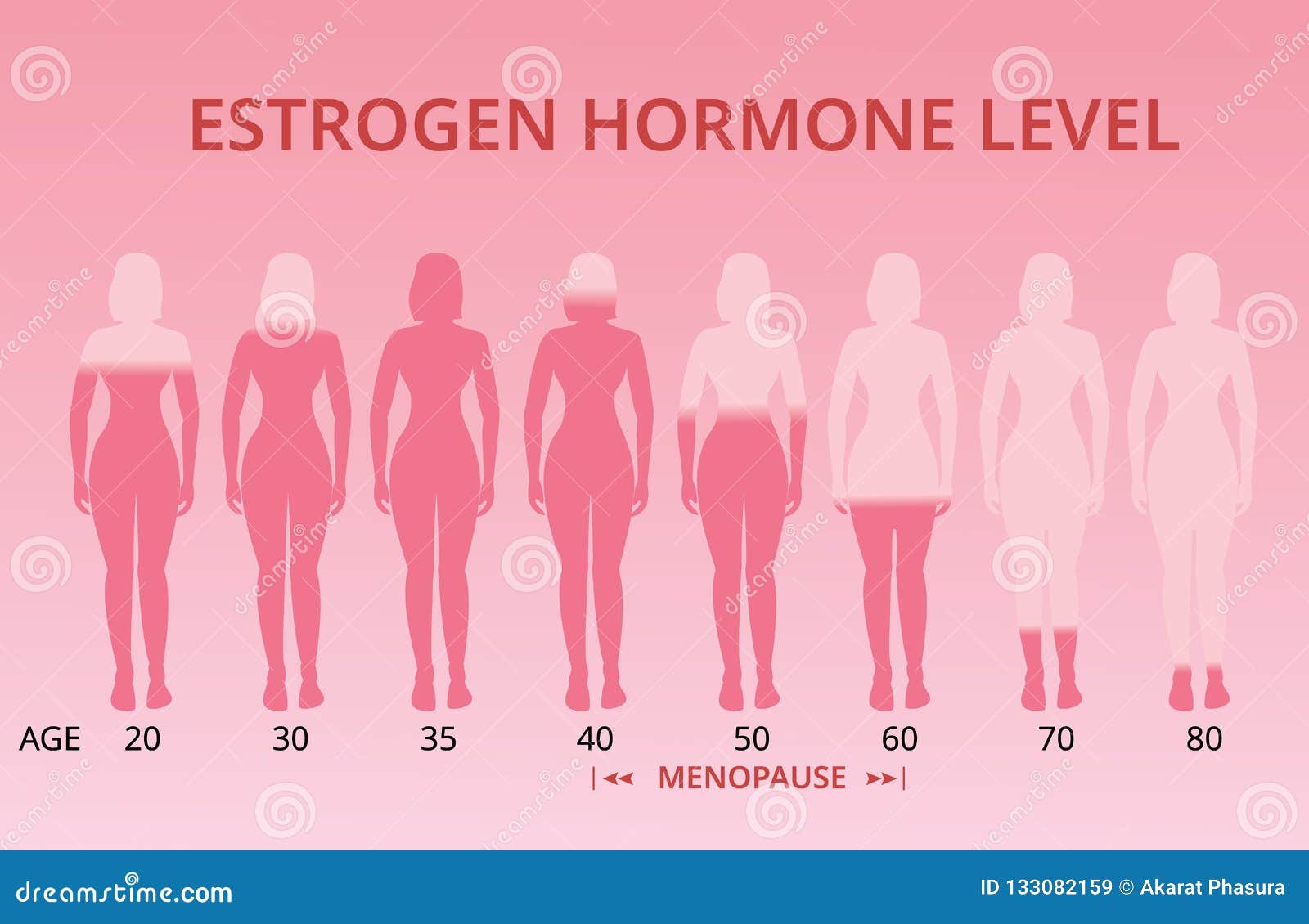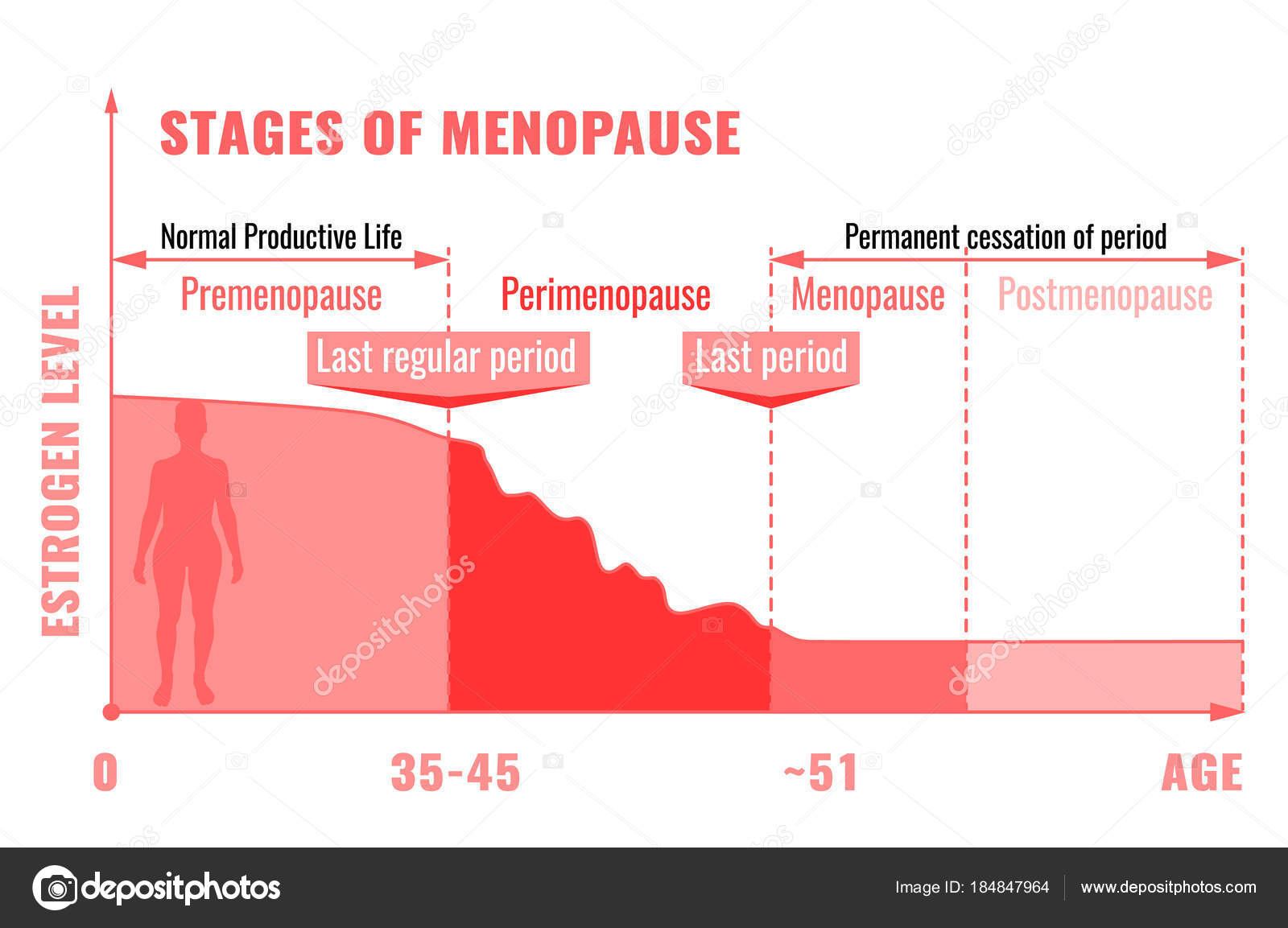Estrogen, a crucial hormone in the female body, plays a pivotal role in regulating reproductive function and overall health. As women approach menopause, a natural decline in estrogen levels can trigger a range of physical and emotional symptoms. Understanding the interplay between estrogen and menopause is essential for navigating this transformative stage of life.
This comprehensive guide delves into the intricacies of estrogen’s role, the process of menopause, and the various approaches available to manage its symptoms. By shedding light on the complexities of this transition, we empower women to make informed decisions about their health and well-being during and beyond menopause.
Estrogen and Menopause

Estrogen is a crucial hormone in the female body, playing a vital role in various physiological processes. It is primarily produced by the ovaries and is responsible for regulating the menstrual cycle, maintaining reproductive health, and influencing bone density, skin health, and mood.
Menopause and Estrogen Levels
Menopause is a natural biological transition in a woman’s life, typically occurring between the ages of 45 and 55. It marks the end of a woman’s reproductive years and is characterized by the cessation of menstrual periods and a decline in estrogen production.
The gradual decrease in estrogen levels during menopause leads to various physical and emotional changes.
Symptoms of Menopause
The symptoms of menopause can vary from woman to woman, both in intensity and duration. Some common symptoms associated with estrogen deficiency include:
- Hot flashes and night sweats
- Mood swings and irritability
- Vaginal dryness and discomfort
- Sleep disturbances
- Weight gain
- Thinning hair and dry skin
- Increased risk of osteoporosis
These symptoms can significantly impact a woman’s quality of life, making it essential to seek medical advice and explore treatment options to alleviate the discomfort.
Estrogen Replacement Therapy (ERT)
Estrogen Replacement Therapy (ERT) is a treatment option for women experiencing symptoms of menopause. It involves taking estrogen, either alone or in combination with progestin, to replace the hormones that the body stops producing during menopause.
ERT can effectively relieve many of the symptoms associated with menopause, including hot flashes, night sweats, vaginal dryness, and mood swings. It can also help prevent osteoporosis, a condition that weakens bones and increases the risk of fractures.
Types of ERT
There are several different types of ERT available, including:
- Oral tablets:These are the most common type of ERT and are taken once or twice a day.
- Transdermal patches:These patches are applied to the skin and release estrogen through the skin.
- Vaginal rings:These rings are inserted into the vagina and release estrogen directly into the vaginal tissue.
- Injections:These injections are given once every few months and release estrogen into the bloodstream.
Benefits of ERT
ERT can provide several benefits for women experiencing menopause, including:
- Relief from hot flashes and night sweats
- Reduced vaginal dryness
- Improved mood and sleep
- Reduced risk of osteoporosis
Risks of ERT
ERT is generally considered safe, but there are some potential risks associated with its use, including:
- Increased risk of blood clots
- Increased risk of breast cancer
- Increased risk of endometrial cancer
- Stroke
- Heart attack
The risks of ERT are generally small, but they should be discussed with a doctor before starting treatment.
Natural Remedies for Menopause

Menopause is a natural transition in a woman’s life, but it can come with a variety of unpleasant symptoms, including hot flashes, night sweats, mood swings, and vaginal dryness. While hormone replacement therapy (HRT) is an effective treatment for many women, some prefer to try natural remedies first.
There are a number of natural remedies that have been shown to be effective in alleviating menopause symptoms, including:
Black Cohosh
- Black cohosh is a herb that has been used for centuries to treat menopause symptoms. It is thought to work by mimicking the effects of estrogen, which can help to reduce hot flashes, night sweats, and mood swings.
- Several studies have shown that black cohosh is effective in reducing hot flashes. One study found that women who took black cohosh experienced a 50% reduction in hot flashes, compared to women who took a placebo.
- Black cohosh is generally considered safe, but it can cause side effects such as nausea, vomiting, and diarrhea. It is important to talk to your doctor before taking black cohosh, especially if you have any underlying health conditions.
Soy
- Soy is a plant-based food that contains isoflavones, which are compounds that have estrogen-like effects. Soy has been shown to be effective in reducing hot flashes, night sweats, and mood swings.
- One study found that women who ate soy isoflavones experienced a 26% reduction in hot flashes, compared to women who ate a placebo.
- Soy is generally considered safe, but it can cause side effects such as nausea, vomiting, and diarrhea. It is important to talk to your doctor before eating soy, especially if you have any underlying health conditions.
Exercise
- Exercise is a great way to improve overall health and well-being, and it can also help to reduce menopause symptoms.
- Exercise has been shown to reduce hot flashes, night sweats, and mood swings. One study found that women who exercised regularly experienced a 50% reduction in hot flashes, compared to women who did not exercise.
- Exercise is generally safe for most people, but it is important to talk to your doctor before starting an exercise program, especially if you have any underlying health conditions.
Other Natural Remedies
- There are a number of other natural remedies that have been shown to be effective in alleviating menopause symptoms, including acupuncture, yoga, and meditation.
- These remedies are thought to work by reducing stress and improving overall health and well-being.
- It is important to talk to your doctor before trying any natural remedies for menopause, especially if you have any underlying health conditions.
Lifestyle Changes for Menopause

Lifestyle changes can significantly alleviate the symptoms associated with menopause. Incorporating these adjustments into your daily routine can improve your overall well-being and manage the physical and emotional challenges of this transition.
Here are some specific recommendations to consider:
Diet
Maintaining a balanced and nutritious diet is crucial during menopause. Focus on consuming:
- Fruits and vegetables: Rich in antioxidants, vitamins, and minerals
- Whole grains: Provide fiber, which aids in digestion and weight management
- Lean protein: Supports muscle mass and reduces hunger
- Calcium-rich foods: Essential for bone health
- Omega-3 fatty acids: Found in fish and certain plant-based sources, support heart and brain health
Exercise
Regular exercise is vital for managing menopause symptoms. Aim for at least 150 minutes of moderate-intensity aerobic activity or 75 minutes of vigorous-intensity aerobic activity per week. Choose activities that you enjoy and incorporate strength training exercises twice a week.
Stress Management
Stress can exacerbate menopause symptoms. Find healthy ways to manage stress, such as:
- Yoga or meditation
- Spending time in nature
- Connecting with loved ones
- Getting enough sleep
Sleep
Aim for 7-9 hours of quality sleep each night. Establish a regular sleep-wake cycle, create a relaxing bedtime routine, and avoid caffeine and alcohol before bed.
Smoking and Alcohol
Smoking and excessive alcohol consumption can worsen menopause symptoms. Quitting smoking and limiting alcohol intake is highly recommended.
User Queries
What are the most common symptoms of menopause?
Hot flashes, night sweats, vaginal dryness, mood swings, sleep disturbances, and weight gain are among the most frequently reported symptoms.
Can menopause be prevented?
Menopause is a natural process that cannot be prevented. However, lifestyle factors such as maintaining a healthy weight, engaging in regular exercise, and managing stress can help alleviate its symptoms.
Is hormone replacement therapy (HRT) safe for everyone?
HRT can be an effective treatment for menopause symptoms, but it is not suitable for all women. It is important to discuss the risks and benefits with a healthcare professional before starting HRT.